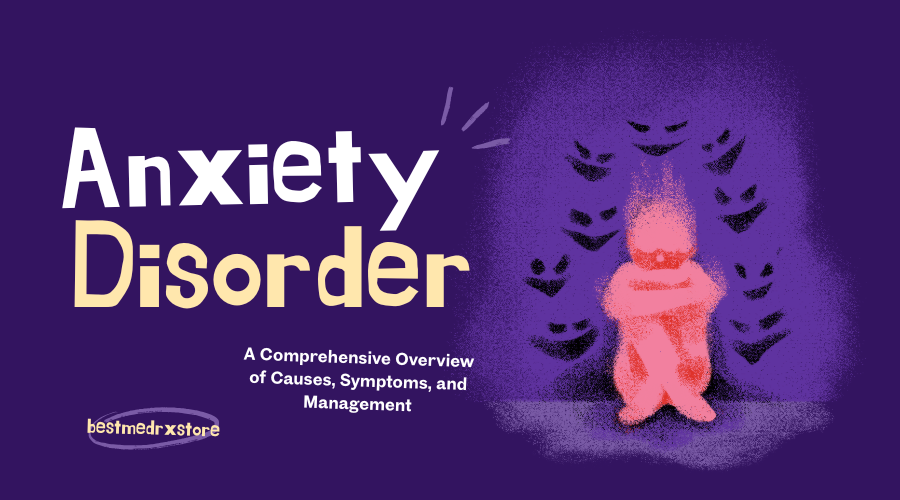Signs and Symptoms of Xanax Addiction
Introduction
Xanax, known generically as alprazolam, is a medication prescribed to treat anxiety and panic disorders. While it can be highly effective under medical supervision, Xanax has a high potential for addiction and misuse. Understanding the signs and symptoms of Xanax addiction is crucial, whether for yourself or a loved one. Early recognition can lead to timely intervention and recovery.
What is Xanax?
Xanax belongs to a class of drugs called benzodiazepines. These drugs act on the central nervous system to produce a calming effect. Doctors prescribe Xanax to help reduce anxiety, panic attacks, and sometimes insomnia.
However, due to its fast-acting effects, many people misuse Xanax recreationally, leading to dependency and addiction.
Why is Xanax Addiction Dangerous?
Addiction to Xanax can cause serious health risks, including overdose and withdrawal symptoms that can be life-threatening. Xanax affects brain chemistry, making it difficult for users to stop without professional help. The risk increases with long-term use, high doses, or mixing Xanax with alcohol or other drugs.
Signs of Xanax Addiction
Recognizing addiction early can save lives. Here are some common signs to watch out for:
1. Increased Tolerance
People addicted to Xanax may take larger doses over time to achieve the same calming effects. This growing tolerance is one of the first warning signs of addiction.
2. Withdrawal Symptoms
When someone addicted tries to stop or reduce Xanax use, they often experience withdrawal symptoms such as anxiety, irritability, shaking, sweating, nausea, and even seizures.
3. Cravings
Intense urges or cravings to use Xanax despite knowing its harmful effects.
4. Loss of Control
Using more Xanax than intended or for longer periods without being able to cut down.
5. Neglecting Responsibilities
Ignoring work, school, or family commitments due to drug use or its after-effects.
6. Behavioral Changes
Mood swings, depression, paranoia, or secretive behavior often accompany addiction.
7. Social Withdrawal
Avoiding friends and social activities that don’t involve drug use.
Physical Symptoms of Xanax Addiction
Physical symptoms often become more apparent as addiction worsens. These include:
- Drowsiness or sedation
- Confusion and memory problems
- Poor coordination and dizziness
- Slurred speech
- Headaches
- Digestive issues like nausea or constipation
- Respiratory difficulties, especially if combined with other depressants
Psychological Symptoms of Xanax Addiction
Xanax impacts mental health, leading to various psychological symptoms:
- Increased anxiety or panic when not using the drug
- Depression and mood swings
- Difficulty concentrating
- Paranoia or hallucinations (in severe cases)
- Emotional numbness or detachment
Risk Factors for Developing Xanax Addiction
Certain factors increase the risk of addiction:
- History of substance abuse or addiction
- Using Xanax without medical supervision
- Taking high doses or using Xanax for longer than prescribed
- Co-occurring mental health disorders like anxiety or depression
- Easy access to the drug through prescriptions or illicit sources
How is Xanax Addiction Diagnosed?
Diagnosis usually involves a detailed clinical evaluation by a healthcare professional, including:
- Reviewing medical and substance use history
- Assessing symptoms of dependence and withdrawal
- Mental health evaluation to check for co-existing disorders
- Laboratory tests to rule out other conditions
Treatment Options for Xanax Addiction
Overcoming Xanax addiction requires a combination of medical, psychological, and social support.
1. Medical Detoxification
Detox under medical supervision is critical due to potentially severe withdrawal symptoms. Doctors may gradually taper doses to reduce risks.
2. Behavioral Therapy
Therapies like Cognitive Behavioral Therapy (CBT) help patients identify triggers and develop coping strategies.
3. Support Groups
Groups such as Narcotics Anonymous provide peer support and encouragement for long-term recovery.
4. Medication-Assisted Treatment (MAT)
Certain medications may be prescribed to manage withdrawal symptoms or treat underlying mental health conditions.
Preventing Xanax Addiction
- Always use Xanax exactly as prescribed.
- Never share medications with others.
- Avoid mixing Xanax with alcohol or other drugs.
- Communicate openly with your doctor about any side effects or concerns.
- Seek help early if you suspect dependence.
Conclusion
Xanax addiction is a serious but treatable condition. Recognizing the signs and symptoms early can make a significant difference in recovery outcomes. If you or someone you know shows signs of Xanax misuse or addiction, professional help is essential.
Remember, addiction is not a moral failing but a health condition, and support is available.

